
During an interview at the 2022 American Heart Association Scientific Sessions in Chicago, Michael A. Portman, MD, FAHA, Seattle Children's Hospital addressed how cardiac disease presents in pediatric vs adult patients.

Maggie is a senior editor for The American Journal of Managed Care® (AJMC®) and produces written, video, and podcast content covering several disease states. She joined AJMC® in 2019, and has been with AJMC®’s parent company, MJH Life Sciences®, since 2014, when she started as a copy editor.
She has a BA in English from Penn State University. You can connect with Maggie on LinkedIn.

During an interview at the 2022 American Heart Association Scientific Sessions in Chicago, Michael A. Portman, MD, FAHA, Seattle Children's Hospital addressed how cardiac disease presents in pediatric vs adult patients.

Patients included in this subanalysis of data from the REHAB-HF trial were 60 years and older and had been hospitalized for acute decompensated heart failure.

The parents of pediatric patients who have atopic dermatitis experience stress just as their children do, and this study investigated how that stress manifests among the parents, comparing outcomes between mothers and fathers.

For 2 important reasons—that brain cancer is so aggressive and its risk may be elevated in the presence of certain allergies—investigators of a meta-analysis set out to investigate potential connections between eczema and various brain cancers.

Disease outcomes in chronic rhinosinusitis with nasal polyps (CRSwNP) that related to inflammation and endotype specification were goals in this new study that evaluated the biomarker potential of S100A4.

Levels of certain biomarkers of inflammation in prurigo nodularis were evaluated between patients with and without the chronic inflammatory skin disorder, with the goal of showing potential for precision medicine in prurigo nodularis.

We want to make it easy for our patients to manage and navigate the financial toxicity they encounter from their cancer care, noted Mike Koroscik, MBA, MHA, vice president of oncology, Allina Health and the Allina Health Cancer Institute.

With previous research showing that having a history of infection can lead to loss of autoimmunity, Swedish researchers set out to investigate a potential link between prior infection and development of eosinophilic esophagitis (EoE).

The efficacy and safety of sacubitril/valsartan, the angiotensin receptor neprilysin inhibitor, was investigated among a patient population who had heart failure with preserved ejection fraction (HFpEF) and currently receiving maintenance hemodialysis (MHD).

There are still barriers to mental health care, in both the medical and outside worlds, noted Debra Delaney, MSN, FNP-BC, primary care nurse practitioner at ChristianaCare’s Helen F. Graham Cancer Center & Research Institute.
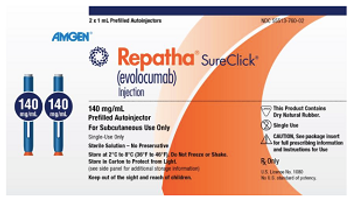
Investigators writing in BMJ Open called for “a complete restoration of FOURIER trial data.” Amgen, the maker of evolocumab, said it stood by the data.

With mixed findings from previous studies focused on atopic dermatitis and the use of cognitive behavioral therapy (CBT) as a treatment modality, investigators modified an existing online CBT intervention to account for the lack of clinical psychologists in the dermatological space.

Our top coverage from this year’s San Antonio Breast Cancer Symposium (SABCS) included updated data on tamoxifen and trastuzumab deruxtecan, treatments long proven effective in the breast cancer space.
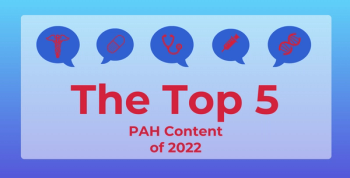
The most-read articles in pulmonary arterial hypertension (PAH) for this year ran the gamut of special-interest areas: from treatment costs to pediatric PAH to high-risk patients.
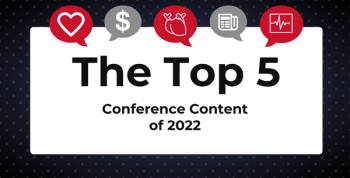
The American Journal of Managed Care® covered thousands of miles in 2022, virtually and in person, criss-crossing the country and the world to deliver the latest clinical data, trial results, and drug developments.

Nasal polyp development, treatment, and recurrence were topics up for discussion in this year’s most popular nasal polyps–related content.

The biomarker potential of Charcot-Leyden crystals in nasal tissue was investigated over 2 years in 110 patients with diagnosed chronic rhinosinusitis with nasal polyps (CRSwNP).

BRAF mutations were addressed in depth this year, having been mentioned in 3 of this year’s top 5 articles. Also discussed were a first-in-its-class combination treatment approval and potential indicators of increased skin cancer risk.

A pair of abstracts presented during this year’s 64th American Society of Hematology Annual Meeting and Exposition explored barriers to treatment for sickle cell disease (SCD).

For this analysis, the Japan Pulmonary Hypertension Registry provided data from 2008 to 2021 on patients with diagnosed portopulmonary hypertension (PoPH).

In this study, researchers treated 37 basal cell carcinoma (BCC) lesions from 30 patients, with follow-ups at 5 time points after baseline examination.
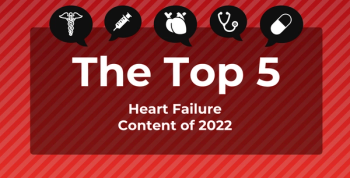
In heart failure this year, value-based care, left ventricular ejection fraction, and disease prevention were among the most popular topics discussed.
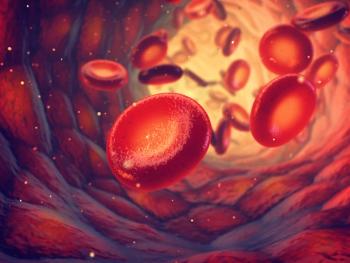
A pair of abstracts presented at this year’s 64th American Society of Hematology Annual Meeting and Exposition bear out the significant transfusion-free rate at 3 years following beti-cell administration and marked improvements in patient-reported outcomes, including the ability to work and be physically active.

This new study, which followed patients up to 6 months after functional endoscopic sinus surgery, evaluated results using objective and subjective measures.

At this year’s American Heart Association (AHA) Scientific Sessions, held November 5-7 in Chicago, Illinois, hot topics for discussion included VICTORIA trial data and the great need for new antihypertensive agents to reduce health care disparities.

Response, progression-free survival, overall survival, time-to-next-treatment, and toxicity outcomes were evaluated among patients with advanced cutaneous squamous cell carcinoma (cSCC) who received first-line treatment with immune checkpoint inhibitors.

The ongoing multicenter open-label adaptively randomized phase 2 I-SPY2 trial is currently investigating dual immune blockade with cemiplimab plus the investigational agent REGN3767 as neoadjuvant therapy for early-stage, high-risk breast cancer, and new data were presented yesterday at the San Antonio Breast Cancer Symposium.
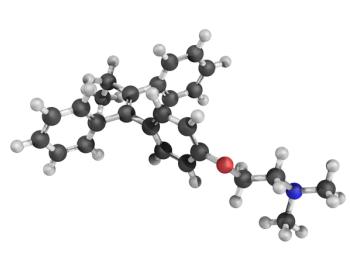
Babytam is the 5-mg daily dose of tamoxifen being studied in the ongoing TAM-01 study, which is investigating incidence of invasive breast cancer or ductal carcinoma in situ among high-risk women who have received the treatment regimen for 3 years.

Initial data on NTLA-2001, which is a novel investigative intravenous agent that works to prevent development of cardiac transthyretin (ATTR) amyloidosis by targeting the TTR gene and TTR protein levels, were presented at this year’s American Heart Association’s Scientific Sessions in Chicago.

The utility of annual MRI plus mammogram was investigated in a new meta-analysis delivered at this year’s San Antonio Breast Cancer Symposium, with the goal of optimizing use of MRI by considering potential for overdiagnosis and tailoring to age and risk group.

259 Prospect Plains Rd, Bldg H
Cranbury, NJ 08512
© 2025 MJH Life Sciences®
All rights reserved.
